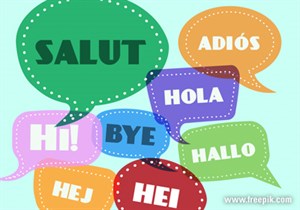Challenges with Working in a Cross-Cultural and Multilingual Environment
It is not a secret that a company’s success is heavily based on its people, their skill set and their dedication and passion to the job they are performing.
An employee is defined by their talents, knowledge and ability to perform a certain role or meet a client’s needs. This is the “visible” side of an employee. The “hidden” side, which is equally as important, is the cultural identity. The culture of an employee impacts their perception of life, work, business relationships and how they handle challenges.
In a multicultural team, good teamwork and willingness to understand the other person are even more important for a healthy company atmosphere.
For this blog, let’s look at some issues that may arise when working in a cross-cultural and multilingual environment.

The Language Barrier
When your colleagues speak different languages, it is very easy to misunderstand each other. Pronunciations can cause confusion and people may feel uncomfortable asking someone to repeat themselves, especially when the situation is stressful.
To illustrate this with personal experience, when I applied for the position at GPI, during the interview we were discussing quotations, and my interviewer, who is from Egypt, was saying “quote” but to me, it sounded like “court”. It took me a while to understand what he meant, and I still remember how confused I felt when I had to reply but I did not have a clue what he was asking about.
Never feel too shy or uncomfortable to ask your conversation partner to repeat the sentence and elaborate. It will save you from making costly mistakes and show your partner that you are really making an effort to do your best at understanding him or her.

The Cultural Background
Things that are normal or routine in one culture can be totally unacceptable in another culture. A person cannot possibly be aware of all the cultural specifics of another person, and sometimes people unintentionally make inappropriate comments or behave in a way someone is not accustomed to.
Let me share a simple example regarding emails, calls and business hours: in my home country of Latvia it is a normal practice not to expect replies by email after normal working hours and I will only disturb a colleague if the matter is very serious. However, in other countries, like Russia and Egypt, the tendency is to work 24/7 in response to the industry needs.
Familiarize yourself with the behavior patterns accepted in your colleagues’ countries, investigate their traditions and lifestyle. Make sure to mind what you are saying until you learn what is acceptable for this person. Give it time, eventually you will navigate the best way to respectfully communicate.
Mutual Understanding
Cultural and language barriers can cause frustrations when there are miscommunications. Don’t let emotions take over. Think about the objective you want to reach, and use the most appropriate means for it. For example, email does not convey the speaker’s emotions and limits the possibility to ask questions and elaborate on the topics being discussed. It can be very easy to misinterpret what someone means in an email. Calling someone on the phone, hearing their tone and asking questions can alleviate problems caused by a language barrier.
If you feel something is not getting done correctly, make an effort to understand the other person and think about the best way to communicate with him or her. Don’t expect that your way of approaching the problem is the only option. Explain your reasoning and make the communication person-oriented, and you will be surprised by the level of understanding you will receive in return.
Working with colleagues from other countries and cultures can at times be challenging, but it is so rewarding when you can learn from each other and open your eyes to other ways of life.
